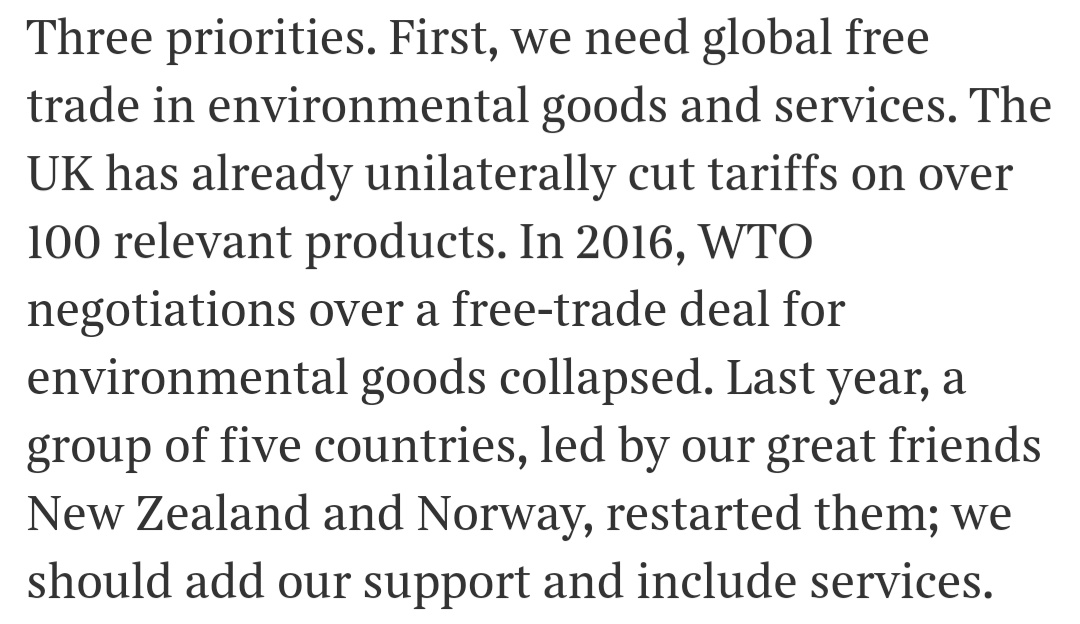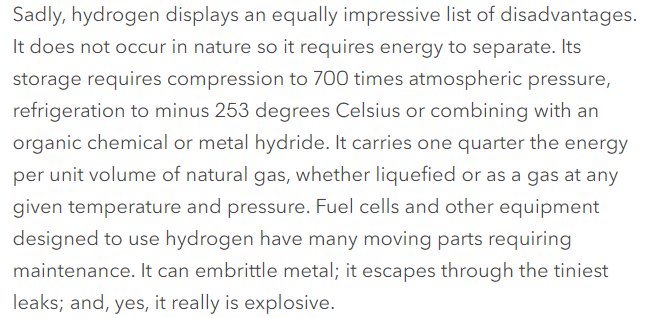
Countries responsible for 78% of global GDP will have pledged net-zero emissions by 2050 or (in the case of China and Brazil) 2060. But is the financial system on track to deliver this scale of change? My deep dive on green finance for @BloombergNEF...
about.bnef.com/blog/liebreich…
about.bnef.com/blog/liebreich…
Over $500 billion went to net-zero compatible sectors last year. But no amount of investment in clean energy and transportation will get the world to net zero if the capital markets continue to invest at the same time in fossil fuel-based infrastructure. about.bnef.com/blog/liebreich…
Back in 2012 I attended the @WEF Global Agenda Councils Annual Meeting in Dubai. Not one of the Agenda Councils on the future of the financial system had #ClimateChange on its radar. If you don't believe me, you can check: www3.weforum.org/docs/GAC/2013/…
Clean energy was too "risky". So I wrote a report with Angus McCrone, chief editor of @BloombergNEF accusing the financial system of being #InsitutionallyFossilist: unintentionally biasing investment towards fossil fuels. It caused quite a stir!
about.bnef.com/blog/financial…
about.bnef.com/blog/financial…
The @WEF, to their credit, published a version, "Financial Regulation – Biased Against Clean Energy and Green Infrastructure?" in January 2013
weforum.org/agenda/2013/02…
weforum.org/agenda/2013/02…
In 2014 the @UNEP launched an "Inquiry into the Design of a Sustainable Financial System, publishing its report "The Financial System We Need" in October 2015. And in December 2015, the @FSB_TCFD was created, co-chaired by @MarkJCarney and @MikeBloomberg.
unepinquiry.org/blogs/the-fina…
unepinquiry.org/blogs/the-fina…
Today, there is a wall of money targeting the net-zero transition. Net-zero solutions must surely be in danger of suffering from “irrational exuberance”, judging by @Tesla's valuation (bigger than the next 10 car companies) and the frenzy to complete clean energy-related SPACs.
It is now hard to argue that the financial system is #InstitutionallyFossilist. Indeed, there is an active debate between Lagarde (pro) and Weidmann (against) as to whether central banks should be actively promoting climate action (FWIW I'm with Weidmann).
bloomberg.com/news/articles/…
bloomberg.com/news/articles/…
There are now over 50 global groups are working at cleaning up the financial system – and that's without counting hundreds of national organizations and regulators, or thousands of think-tanks, universities and financial institutions. I kid you not! 

I won't bore you (and wear out your scrolling finger) by going through all 50 orgs here. Just to say, if you're that interested, you will *definitely* want to read the whole 5000-word article, not just a bunch of tweets. I recommend it - but then, I would! about.bnef.com/blog/liebreich…
Suffice to say, there is one thing needed by all of these organizations busily pushing, pulling, pledging and promoting climate finance - and that is data. And this is where things get interesting (I promise!).
Every one of the organizations bases its calculations on the methodologies of the Greenhouse Gas Protocol. This is the rule-book defining this is the rule-book defining Scope 1, Scope 2 and Scope 3 emissions.
A quick reminder: Scope 1 are emissions from your own burning of fossil fuels or emissions of other GHGs; Scope 2 are emissions embodied in purchased electricity, steam, heating and cooling; and Scope 3 are emissions elsewhere in your value chain, either upstream or downstream.
Scope 1 and Scope 2 are relatively straightforward. A utility’s Scope 1 is a power user’s Scope 2, so if you own shares in both, there is a double-count but it's easily removed. Scope 3, however, is a whole different ball game - it's double-count central! Check out this example: 

A big asset owner or manager might hold shares in every one of 20 or more companies who should report the same emissions as Scope 3! Not only that, but in addition to equity, they might own some of those companies' debt too, perhaps several issues of different maturities!
What about derivatives? If you buy a call option on a company’s stock, are you responsible for some of its emissions? A credit default swap? If you borrow stock and sell it short? If you warehouse debt as collateral for a CDO? And all of this can change by the millisecond!
If the goal is to get executives and investors to think about the carbon intensity of the value chains to which their organizations or portfolio companies belong - and to push them to work with other value chain players to reduce emissions - this approach is great. It is working.
But if you want to find out how many tons of CO2 companies in your investment portfolio are actually emitting, to select funds based on their impact on the climate, or to regulate your capital markets to ensure compatibility with the Paris Agreements – *Scope 3 is simply a mess*.
Still with me? We're not done yet, breaking things down. Time to talk about the EU's #Taxonomy of Sustainable Activities. And, yes, it's a mess too! Reminder, it's an attempt to create a list of good and bad behaviour, not just for climate, but all of ESG.
ec.europa.eu/info/business-…
ec.europa.eu/info/business-…
First, the selection of activities approved by the Taxonomy involved hundreds of politically-laden judgments. It turns out to be hard to draw a clear line between good and bad behavior. If you want some examples, read the article!
about.bnef.com/blog/liebreich…
about.bnef.com/blog/liebreich…
The 2nd problem is around data. From Jan 2022, EU-based public companies with over 500 employees will be required to report their % of turnover, capex and operating expenditure accounted for by activities in the Taxonomy. Disclosure *far beyond* anything in financial statements!
And it's a huge amount of work. The most likely outcome is that an army of accountants and consultants will ensure that data are estimated and aggregated in such a way as to meet legal requirements while revealing little of value to competitors – or investors. Take this example: 

The EU Taxonomy might help at project level, eg to eliminate the use of green bonds to fund activities of dubious environmental benefit, or to filter recipient projects for EU Green Deal funds. For corporates and investors it looks like a huge over-reach.
about.bnef.com/blog/liebreich…
about.bnef.com/blog/liebreich…
Does this mean we give up on sustainable finance? No! It just means that it is still undergoing its Cambrian Explosion, with major parts of its information and regulatory infrastructure still in the process of emerging. I'll finish with four promising trends / areas for action.
1) Overhaul the Greenhouse Gas Protocol. It has been axiomatic since the Code of Hammurabi (1750 BC) that financial liabilities are not double counted. Tort law is all about allocating responsibility for harm. Scope 3 is more like collective punishment than an accounting system!
What is needed is a way of allocating emissions to specific players in a value chain. Luckily, the huge brains behind the Expert Group on Climate Obligations for Corporations, 68 eminent jurists and human rights experts, have been doing just that. Read it!
…lesforenterprises.files.wordpress.com/2021/01/epwebp…
…lesforenterprises.files.wordpress.com/2021/01/epwebp…
OK, it's 372 pages, but you weren't doing anything much tonight. They deal with emissions that are avoidable vs those that are excessive, account for who has control over decisions that drive emissions, and speak to investors, insurers, reinsurers – even advertising agencies!
Also, we can and must do a far better job of tracking emissions through the value chain. Distributed ledger technology could have been designed with a job like this in mind (as could satellite technology, sensor networks, big data and machine learning).
oecd.org/finance/Blockc…
oecd.org/finance/Blockc…
2) Accountants will save the world! Nothing will focus the minds of investors quite like climate-related impairments, and they are coming. @IFRSFoundation has issued guidance, as have @FRCnews @TheFCA the PRA and @TPRgovuk. US #GAAP lags but will converge. cdn.ifrs.org/-/media/featur…
The long-term shift of climate risk from fuzzy and voluntary ESG reports to quantified and regulated financial statements will mark a huge inflection point in the history of climate action. By the way, “accountants will save the world” is from a @MPB_WBCSD speech, Rio, 2012:🎩
3) We also have to put a price on the damn carbon. Otherwise polluting value chains (the Morlock economy) get a free-ride at the expense of net-zero value chaings (the Eloi economy). If you haven't read HG Wells Time Machine, now would be a good time.
According to a 2020 Guidehouse report on behalf of the World Bank, nearly a quarter of global emissions are already covered by some form of carbon pricing. We need to keep going! And we need Carbon Border Adjustments to stop the Morlocks from free-riding.
guidehouse.com/insights/energ…
guidehouse.com/insights/energ…
4) We all need to understand that zero emissions and carbon removal are now the only games in town. Back in 2012, the name of the game was cap and trade: no need to eliminate emissions entirely, just limit them and ration them toward sectors where reductions are most expensive.
No more. We are in a world of elimination, not rationing or "avoided emissions". Since the Paris Agreement and the @IPCC_CH October 2018 Special Report on 1.5ºC, we know that to maintain a recognizable climate, the goal must be net zero within around a single asset lifetime.
Unfortunately,*none* of the currently available methodologies focuses unequivocally on the two goals of reducing controllable emissions and developing high-quality offsets which capture carbon and sequestering it permanently. Hence all these inconsistent net zero pledges.
Even @sciencetargets sound great - until you realize that its targets may be science-based, but its associated rules and roadmaps are not: they set arbitrary targets for Scope 3 , which, as we have seen, companies generally do not control, and they rule out any use of offsets.
Oh, did I say avoided emissions were out? We'll never get to net zero that way: we’ll just end up with a net-zero (Eloi) economy, alongside an emitting (Morlock) economy – one smaller than it might have been, but still big enough to breach planetary boundaries.
Where developing world countries require incentives to avoid deforestation or leave fossil fuels in the ground, these have to be provided by governments, not private players – which will no doubt be the the focus of some tough Article 6 negotiations at COP26 in Glasgow.
So. If we can accelerate these four trends – transparently allocating emissions to the organizations causing them; integrating climate risk into financial reporting; extending carbon pricing; and focusing on net zero – we can build a truly sustainable financial system.
Then we can use our time machine to visit a future in which the health of the capital markets is not in opposition to the health of the planet - surely that is something worth working for!
Selah. Now do read the article, it's an absolute page-turner!
about.bnef.com/blog/liebreich…
Selah. Now do read the article, it's an absolute page-turner!
about.bnef.com/blog/liebreich…
• • •
Missing some Tweet in this thread? You can try to
force a refresh







